A long weekend of celebration was sealed with another internationally significant marriage at the 9th World Conference on Sport and the Environment in Doha, which came to a close yesterday. Though it lacked the same grandeur and sparkle of Mr and Mrs Future King, the conference – attended by the International Olympic Committee (IOC) – contained no less of the self-congratulation. The back slapping was mainly orchestrated by IOC President Jacques Rogue, who restated the IOC’s commitment to environmental sustainability as part of the Olympic Games, “We owe it to future generations to continue to promote our green agenda and ensure environmental sustainability in sport and I think we have taken a big step towards that with the Doha Declaration.” The declaration focuses on direct activities related to the economic, social and environmental aspects of sustainable development in sport.
Rogge also insisted that efforts to make sport more sustainable, “set a new standard for environmental sustainability in construction practices, energy conservation and legacy planning.” It’s a bold statement, and a pretense which no doubt helped sway the Olympic bid decision. It comes back to the same word – legacy. As Spectacle has referenced numerous times on this blog, statements like this tend to go unchallenged and unnoticed. But thankfully, this hasn’t always been the case.
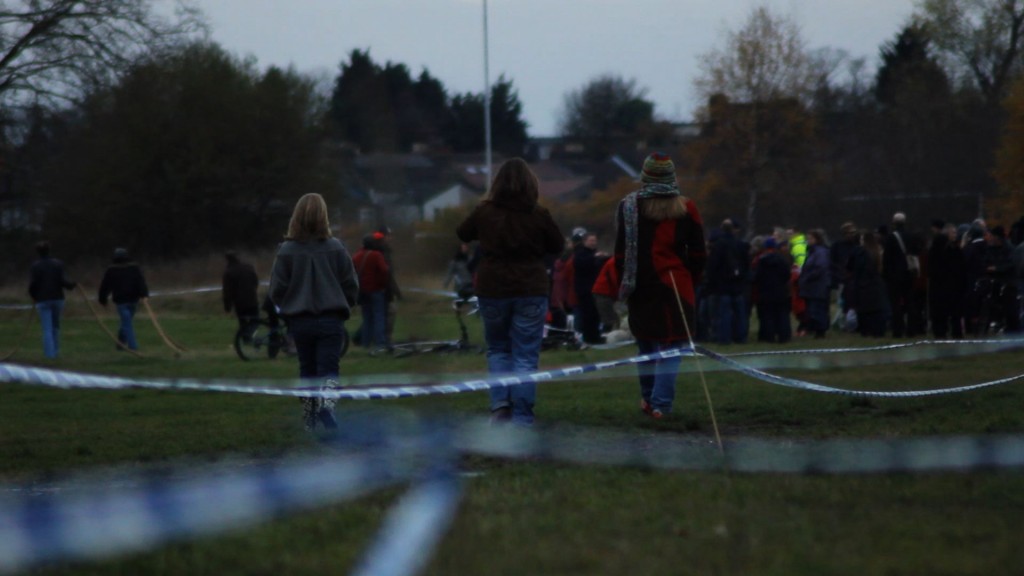 Wanstead Flats – one of the many public spaces to be transformed into concrete structures as part of the Olympics
Wanstead Flats – one of the many public spaces to be transformed into concrete structures as part of the Olympics
There have been several reports and accounts of activities on behalf of the Olympic construction that have amounted to a very damning assessment of the Olympics’ green credentials. The biggest contradiction of the promised green legacy, is the slow disappearance of green public space in favour of concrete construction. Wanstead Flats, a vast open grassland in Epping Forest, will be an operational centre for the Metropolitan Police (you can see a short film of the Wanstead Flats protest here), Arena Fields and the East Marsh, a third of Hackney Marshes – which up until the Games was the largest amateur playing fields in Europe – will become a car park, Manor Gardens Allotments has also disappeared (you can also see footage and interviews of the Gardens before they were demolished here), Clays Lane – a self-sufficient green community – have been built over and their residents evicted, and a substantial amount of Greenwich Park will become an equestrian centre. This achieves the exact opposite of each of the activities listed above, as well as negative impacts on additional targets of sports participation, ecological biodiversity and opportunities for local residents. There is also a general fear that the facilities that the Olympics have promised to develop to replace the space lost will be inaccessible to many people due to private owners charging for use.
The Green Party have released a very critical report on the environmental impact of the Olympic Games, named Hurdles to Jump, which accuses the organisations behind the Olympics of setting very low environmental standards to begin with. Adam White, a spokesman for the Green Party, said that, “in many areas their future plans don’t go far enough.” Among the standards questioned by the publication include the slightly anaemic declaration that 3% of energy will come from solar and wind-turbine sources, and only 20% of the energy for the Olympic Village will come from renewable sources. To make a comparison with previous Olympic Games, every home in the Olympic Village in Sydney had a solar panel. The Greens also noted that the targets would not reach the more general environmental regulations that will be in place by 2012, as well as commenting on the allowances for car travel, “…the amount of car parking provided is too high for the goal of a 100% public transport, walking and cycling for spectators”. Traffic is forecasted to increase threefold in the aftermath of the games. Which if you’d promised less cars and not more cars could technically be spun as a surprise. Car parks have also, historically, proved to be a thorn in the side of environmentalism.
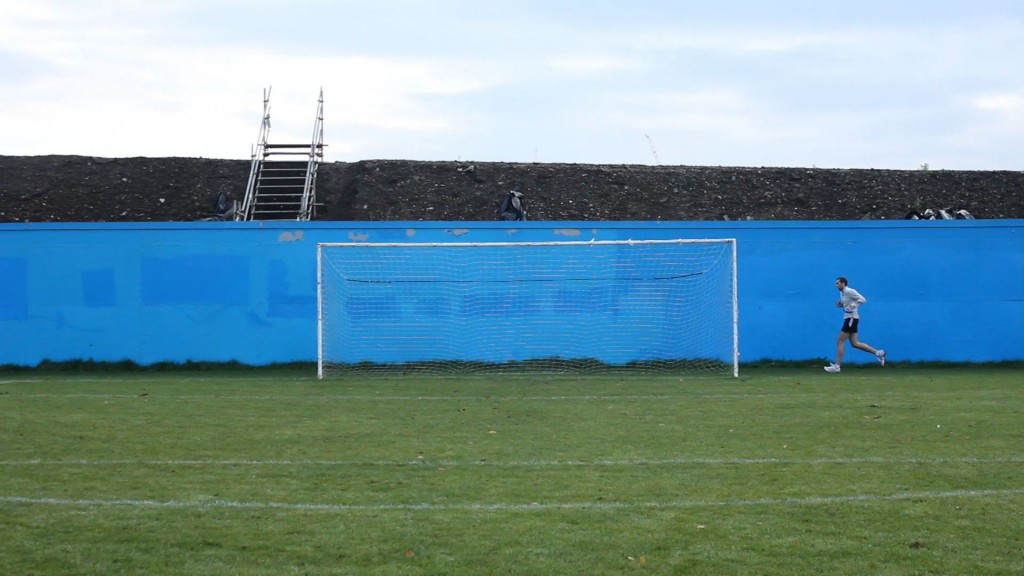 Olympics development on Hackney Marshes
Olympics development on Hackney Marshes
One of the more high profile incidents has been the toxic waste cleanup operation which may well cost the taxpayer £12.7m, reported by the Guardian in November. Amongst other colourful chemicals released was vinyl chloride, which can produce microbes from solvents and remain in groundwater for decades. While this is a small drop in the ocean in comparison to the drastic overspend of the Olympic grand total, it is nevertheless money that could have been spent better elsewhere. Certainly better than a twirling steel tower. The discrepancies are stacking up, particularly with the revelations that the Olympics’ green targets aren’t particularly ambitious, and the premise of a green Olympics, a platform upon which the bidding committee stood proudly at the time of the announcement of London’s winning bid, looks to be slipping away.
One of the few legitimate arguments for the Olympics being a nomadic event is that it would act as a catalyst for sustainable investment and development, otherwise why not keep the Olympics in one location? Surely if the Olympics 2012 are judged to have failed to provide this investment – a huge opportunity for London and England to lead by example – then the travelling nature of the competition must be reconsidered in light of the sacrifices needed to stage it. The most interesting aspect of the argument is whether or not the various agencies behind the developments of the Olympics will be (or can be) held accountable, if indeed the legacies they promise do not materialise. The premise of a green Olympics was posted on this blog in the last few weeks, the trumpeting of positive grassroots sports and participation impacts has abruptly ceased due to reports that stated a contrary reality. Will the IOC and the London Development Agency (LDA) be allowed to quietly walk away if they fail to meet their green targets? If inaccurate claims on this scale are not challenged, then increasingly grandiose, unfounded promises will continue to be made to secure contracts that allow unchecked – and in many cases unlawful – planning and construction.
Sources: Raising The Bar, published by the Green Party; The Guardian; Londonoutloud.com; ODA’s Sustainable Development Strategy & Olympic.org (Official website of the Olympic Movement)
Click London Olympics for more blogs
See our Olympics project pages for more information and videos.
Or visit PlanA our general blog on urbanism, planning and architecture.
Spectacle homepage
Befriend Spectacle.Docs on Facebook
Follow SpectacleMedia on Twitter

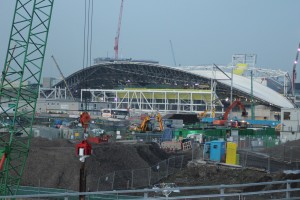
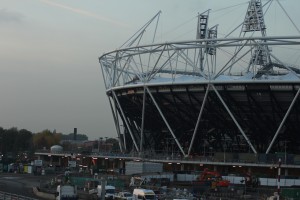

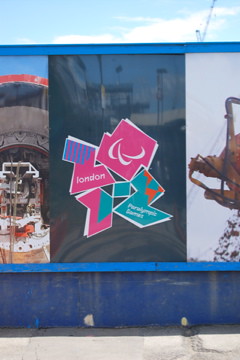
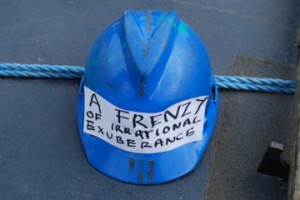
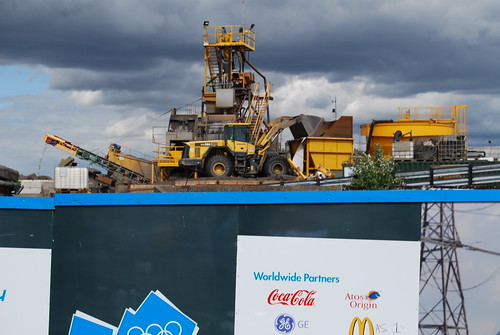
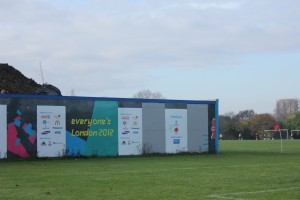
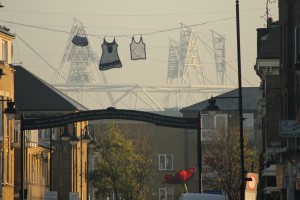
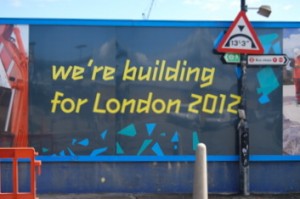
 chief executive Andy Hunt was jubilant that the Con-Lib coalition government had excluded the games from the recent drastic spending cuts.
chief executive Andy Hunt was jubilant that the Con-Lib coalition government had excluded the games from the recent drastic spending cuts.